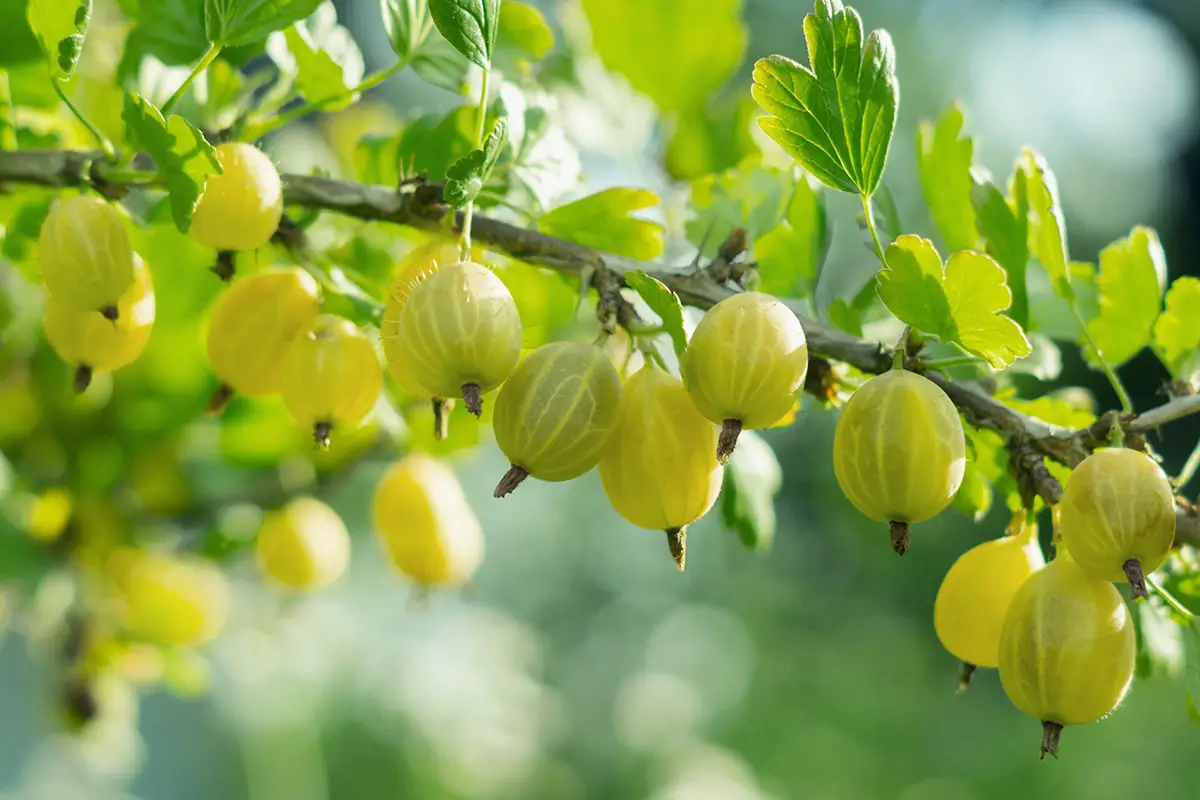In Anton Chekhov’s short story “Gooseberries,” the societal diagnosis of general hypnotism is developed through carefully manipulated and positioned detail. This general hypnotism is defined as when a person is happy only because they have apparently been blinded to the suffering of others. As the character Nikolay Ivanovitch becomes consumed by his desire for wealth and success, his dream unfolds in a morbidly misshapen and tainted form, reflecting his moral devolution. His outrageous story contrasts with the much more subtle narrative told by details like Pelagea’s presence during the course of Ivan Ivanovitch telling of his brother Nikolay’s story. Both narrative streams explore the destructive power of greed and the conceit that pervades the Feudalistic socioeconomic model whose remnants still survive decades after the emancipation of the peasantry.
The Absurd Tale of Nikolay Ivanovitch
Nikolay Ivanovitch’s immorality progresses rapidly throughout his journey to attain his estate. Reflected in the rapid devolution of his physical appearance and moral direction, Nikolay, a government official, becomes so obsessed with attaining his dream of socioeconomic advancement, that the “gentle, good-natured fellow” becomes someone entirely else. (3) He is driven to self-emaciation and isolation, as “He lived parsimoniously, was frugal in food and drink, his clothes were beyond description; he looked like a beggar, but kept on saving and putting money in the bank. He grew fearfully avaricious.” (4) Starving his elderly wife, a widow with a sizable fortune, “[he] never for one moment imagined that he was responsible for her death. Money, like vodka, makes a man queer.” (4) Nikolay’s moral devolution continues even as he ascends to the rank of landowner. Blinded by his new-found status, Nikolay becomes entirely desensitized to the people and the world around him. Hypnotized by rank, his failure to remember “that our grandfather was a peasant, and our father a soldier,” is strikingly callous and a measure of Nikolay’s lack of sensitivity, ironic and blatant erasure in the face of his treatment and opinion of the workers in the village.
The gooseberries in Chekhov’s short story are perhaps the main symbol of Nikolay’s ill-gotten successes. Nikolay dreamt of owning a farmstead all his life, becoming obsessive in pursuing an idealized fantasy shared then with his brother Ivan. His “imaginary pictures were of different kinds according to the advertisements which he came across, but for some reason in every one of them he had always to have gooseberries. He could not imagine a homestead, he could not picture an idyllic nook, without gooseberries.” (3)
He eventually buys a considerable estate, but the land is ill-suited to be the frame for a picturesque scene from years past, “with no orchard, no gooseberry bushes, and no duckpond; there was a river, but the water in it was the color of coffee, because on one side of the estate there was a brickyard and on the other a factory for burning bones.” (4) However, now a landowner, Nikolay sets to take on his long-awaited guise. Gooseberry bushes are planted around his yards while the peasants from the villages toil under his command and continuous mistreatment. The fruits of these labors are “sour and unripe” as Ivan reminisces, his visit to his brother’s estate still fresh in his memory. (5) Yet, Ivan says, Nikolay ate his gooseberries “greedily, continually repeating, ‘Ah, how delicious! Do taste them’…getting up and going to the plate of gooseberries and taking one.” (5, 6) Just as he ignores the bitterness of the gooseberries, Nikolay ignores the villagers’ unhappiness, his wife’s pain, and any apprehension that could be attributed to some innate moral compass, all for the sake of his personal gratifications.
Nikolay’s corruption is further emblazoned in the imagery and scenery surrounding his estate. Ivan paints a severe picture, first noting that “Everywhere there were ditches, fences, hedges, fir-trees planted in rows, and there was no knowing how to get to the yard, where to put one’s horse…”(4) This is particularly interesting as it perhaps hints that Nikolay is using barriers and isolating structures to further distance himself from society or perhaps even reality and maybe even defend it from loss. Ivan then describes the inhabitants using grotesque imagery… “met by a fat red dog that looked like a pig. It wanted to bark, but it was too lazy. The cook, a fat, barefooted woman, came out of the kitchen, and she too looked like a pig…” (4) Such harsh imagery establishes the heavy spiritual and physical toll wrought by the government official’s greed. In every setting detail and physical characteristic attributed to Nikolay and his surroundings, Chekhov illustrates the devolution of morality, casting a nightmarish hue on the idolization of a picturesque aesthetic so obsessive that it becomes morbid in its appearance by the burned bones nearby.
Nikolay Ivanovitch is unable to see through the gooseberry-colored vision of his success. Elevated from lowly government official to esteemed landowner and gentleman, his “change of life for the better, and being well-fed and idle” developed within him “the most insolent self-conceit.” (5) Ivan reflects morosely, “Evidently the happy man only feels at ease because the unhappy bear their burdens in silence, and without that silence happiness would be impossible. It’s a case of general hypnotism. There ought to be behind the door of every happy, contented man someone standing with a hammer continually reminding him with a tap that there are unhappy people; that however happy he may be, life will show him her laws sooner or later, trouble will come for him…but there is no man with a hammer; the happy man lives at his ease, and trivial daily cares faintly agitate him like the wind in the aspen-tree–and all goes well.” (6) In his morbid pursuit of happiness and success, Nikolay becomes persona non grata to his own brother, and the prime example of the vices that perpetuate a system of abuse and manipulation on the working class.
The Subtle Context of Pelagea’s Role
One might initially assume that Ivan provides a foil for his brother. Ivan grew up in the same circumstances, with the same idealized dreams, and yet seems, on the surface, to be free of the absurdity that has overtaken his brother. However, closer examination reveals that Ivan and his friends too are under the same general hypnosis.
Chekhov’s origins within the peasant class are marked by his continued interest in peasant characters, and the house servant Pelagea is a vivid example. In Ivan’s monologue following the story of his brother, the callousness of the serf-owning class and the miseries experienced by the poor are put on display. As the story’s sole representative of the peasantry, she becomes the lodestone for Chekhov’s social commentary.
Pelagea is a servant on the country estate of Alehin, Ivan’s close friend. It is there that the action takes place as the friends discuss the absurd tale of Nikolay Ivanovitch and the ills of society that it brings to light. Evan as Ivan laments that the “unhappy bear their burdens in silence,” Pelagea moves silently through the scene: “the lovely Pelagea, stepping noiselessly on the carpet and smiling softly, handed tea and jam on a tray.” (3) She disappears from the narrative just as quickly and quietly as she appears, altogether unassuming in her existence save for when Alehin and his guests’ attention turns to her. However, it is Pelagea’s quiet presence that casts a shadow on the sincerity of Ivan’s message. Following his story, Ivan and his friends turn to lighter topics as, “they felt inclined, for some reason, to talk about elegant people, about women. And their sitting in the drawing-room where everything–the chandeliers in their covers, the arm-chairs, and the carpet under their feet–reminded them that those very people who were now looking down from their frames had once moved about, sat, drunk tea in this room, and the fact that lovely Pelagea was moving noiselessly about was better than any story.”(7)
Her repeated title of “the lovely” and her presence described only in the context of some service that she has performed is strikingly ironic given Ivan’s sermon. Even as Burkin, Alehin, and Ivan reflect on Nikolay’s immorality and the inhumane treatment of the working class, turning to discuss the need for renewed efforts to change the world around them, Pelagea is the hypnotizing beauty that nullifies any philosophical thought in the end. In her absence, Pelagea is forgotten, and in her presence, expected only for her services. Surrounded by the educated forms of Alehin and his friends and the portraits of the stately previous tenants that made Alehin’s hereditary position possible, Pelagea is a very human reminder of the continued traditions of Feudalism.
Ivan declares that “Freedom is a blessing…we can no more do without it than without air, but we must wait a little. Yes, I used to talk like that and now I ask, ‘For what reason are we to wait,’” as a nod to the movement for continued socioeconomic reformation in the decades following the Emancipation reform of 1861 and the feeling of hopelessness. (6) However, it is clear that he is deriving unquestioned pleasure from her quiet servitude.
In this sense, Chekhov uses Pelagea’s position to ironize Ivan’s heartfelt sermon. At the same time, Pelagea strengthens the message of the overall narrative that idolized success breeds an insensitive, hypnotizing culture that is immoral in its inability to change.
Anton Chekhov constructs the devolution of morality and the consequences of unchecked ambition in his short story “Gooseberries.” Through the transformation of Nikolay Ivanovitch, Chekhov explores the destructive power of greed and the bitter outcomes that arise from pursuing personal success at the expense of others. The symbolism of the gooseberries and the imagery surrounding Nikolay’s estate further emphasize the moral decay and the ill-gotten achievements of the protagonist. Chekhov’s social commentary on the socioeconomic disparities in Russian society and the indifference towards the suffering of others or the commodification of others adds depth to the narrative through the manipulation of the presence and absence of Pelagea in contrast with Ivan Ivanovitch’s monologue following his brother’s tale. “Gooseberries” serves as an expansive example of Chekhov’s ability to manipulate meanings and intentions using details to construct a nuanced, yet powerful narrative of hypnotic self-indulgence, greed, and societal inequalities.







